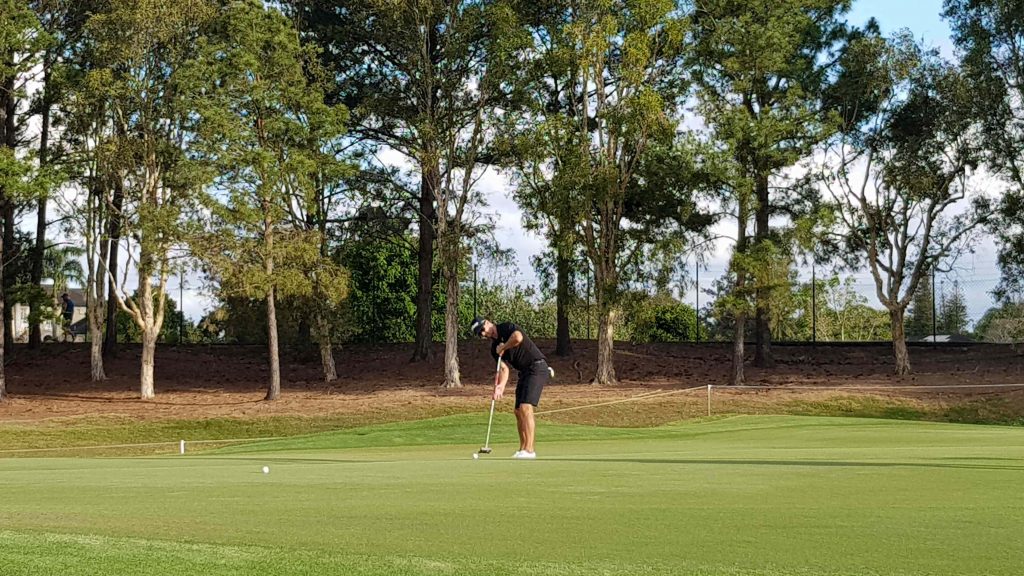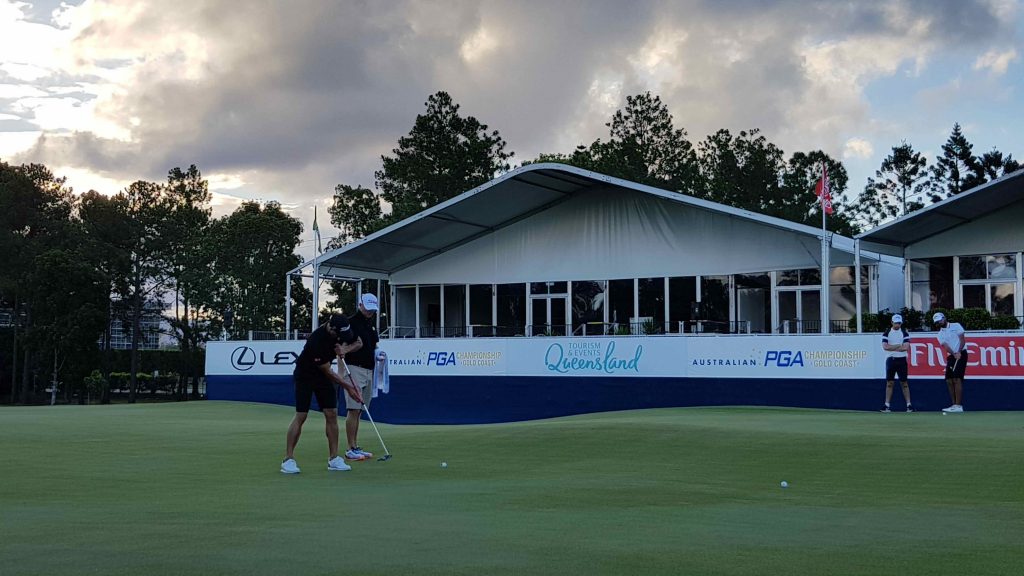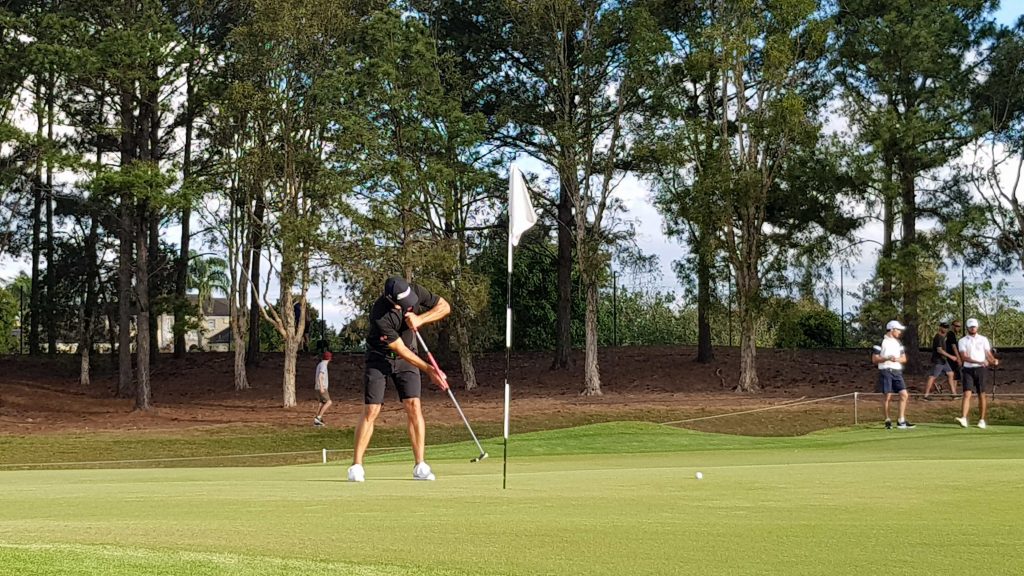Adam Scott’s on-again, off-again love affair with the flatstick that made him forever famous as Australia’s first Masters champion is on the verge of being rekindled on the eve of the Australian PGA Championship at RACV Royal Pines Resort this week.
Asked Adam Scott about putting the long putter back in the bag for #AusPGA but he says there's no guarantee it will be there come Thursday. @GolfDigestAU @PGAofAustralia pic.twitter.com/qUpIHEGpff
— Tony Webeck (@TonyWebeck) November 27, 2017
Eschewing his normal early morning practice round early in tournament week, Scott played an abbreviated practice round with rising young star Curtis Luck on a gorgeous Gold Coast Monday afternoon where he putted exclusively with the long putter that was not in the bag in last month’s WGC-HSBC Champions tournament in China nor the Presidents Cup.

Although he declined a request to speak to Australian Golf Digest about his potential switch back following his practice round, Scott did insist that there was every chance the short putter could retain its spot in his 14-club rotation when the tournament tees off on Thursday.
Currently ranked No.31 in the world, Scott begins his quest to win a second Joe Kirkwood Cup without a top-10 finish since the FedEx St Jude Classic in June and with best finishes in 2017 of a tie for ninth at the Masters and a tie for sixth at The Players Championship.

With a swing that has been the envy of many since he turned professional back in 2000, the majority of Scott’s time on Monday was spent on the greens, reacquainting himself with the long putter by putting two or three balls to a number of different hole locations.
A look at Scott’s putting stats from the 2017 US PGA Tour season highlights perhaps why he is considering starting the new year with an old friend, ranking 172nd on tour in putts from four feet and 145th from five feet, the type of putts that he has historically enjoyed greater success with the long putter.

The ban on the anchoring of long putters that came into effect on January 1, 2016 forced Scott to investigate a return to the shorter flatstick but given Bernhard Langer’s continued dominance on the Champions Tour, it looks as though Scott is entertaining the idea of going back to the long putter with a non-anchored putting stroke.



